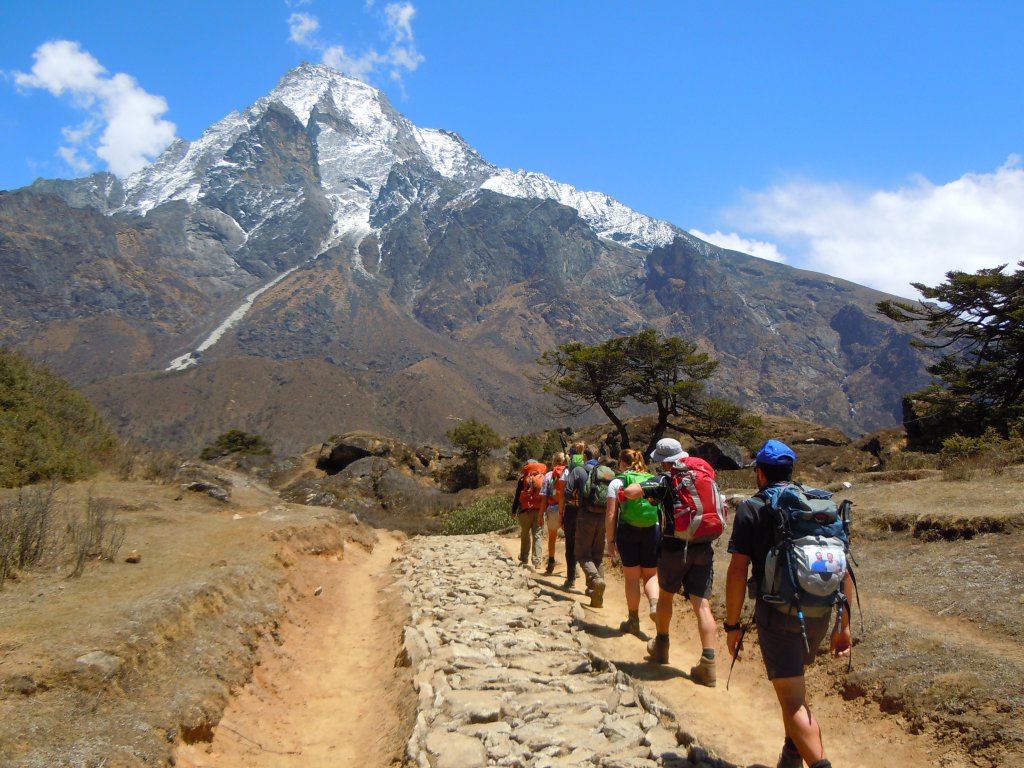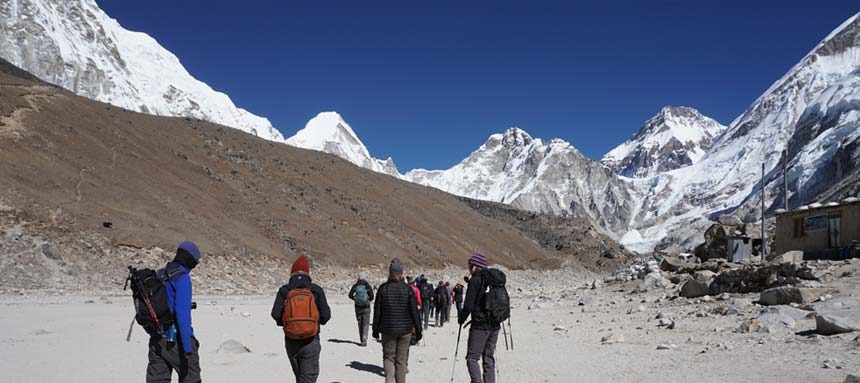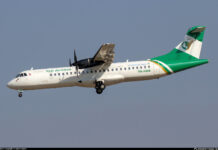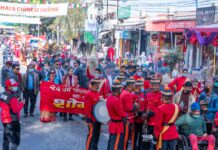This year marks the first time Dixie State University students can travel to Mount Everest’s South Base Camp in Nepal as part of the Study Abroad program.
Jenny Callahan, study abroad program coordinator, said summer 2020 is the first year the Nepal program has been offered and it’s already full. She said the program was created after a Study Abroad Mini-Grant was awarded and used to travel to Nepal last summer to explore how to create the current program.
From May 5-23, students will put into practice DSU’s “active learning, active life” mantra by hiking through Nepal until they reach Mount Everest’s South Base Camp, according to the program’s webpage.
“The purpose of this trip is to allow students hands-on field research dealing with exercise physiology and the adaptations of human physiology to changing environmental factors,” said Steve Bui, assistant professor of exercise science and Nepal program leader. “The route taken will be the same as Sir Edmund Hillary, Tenzin Norgay and the many other mountaineers who wish to reach the summit of the highest point in the world.”

Students will be collecting field data among themselves to assess physiological changes throughout the trip in the form of heart rate, blood pressure, oxygen saturation, spirometry, blood flow, and brain function, Bui said. Mount Everest is part of the Himalayan mountain range, which consists of 10 of the 14 highest points in the world, Bui said.
“During this trip, we will achieve a maximal elevation of 18,514 feet, which is classified as ‘extremely high altitude,’” Bui said. “This combined with the cultural experiences of Nepal and the iconic history and experience of visiting the Mount Everest Base Camp put this trip in a special niche.”
Luis Arevalo, director of global education, said the trip is also a way of exposing students to a new culture, which is an invaluable experience. With Nepal bordering India and Tibet, there are influences from both countries along with Nepal’s own culture, and Nepal has been ranked in the top three most impoverished Asian countries, Bui said.
“All of these factors will help expose students to different cultures, religions and socio-economical classes in the world,” Bui said. “Students will be encouraged to have an open mind and embrace as much of the culture and heritage as possible.”
Bui also had a few points of advice for students who want to go on the trip.
“Although backpacking and hiking experience is not necessarily required for the trip, it is highly encouraged so that students will know better what to expect,” Bui said. “I would also encourage all students to have an open mind and realize that they might not have access to all the normal accommodations and luxuries that are the norm in the United States [such as tap water, toilet paper, and internet speed. Keeping a positive attitude will make the experience more enjoyable as well.”
The cost of the trip is $1,375, which covers in-country lodging, travel, activities, and meals, though it doesn’t include the cost of tuition, fees, airfare, passport fees or discretionary spending.




